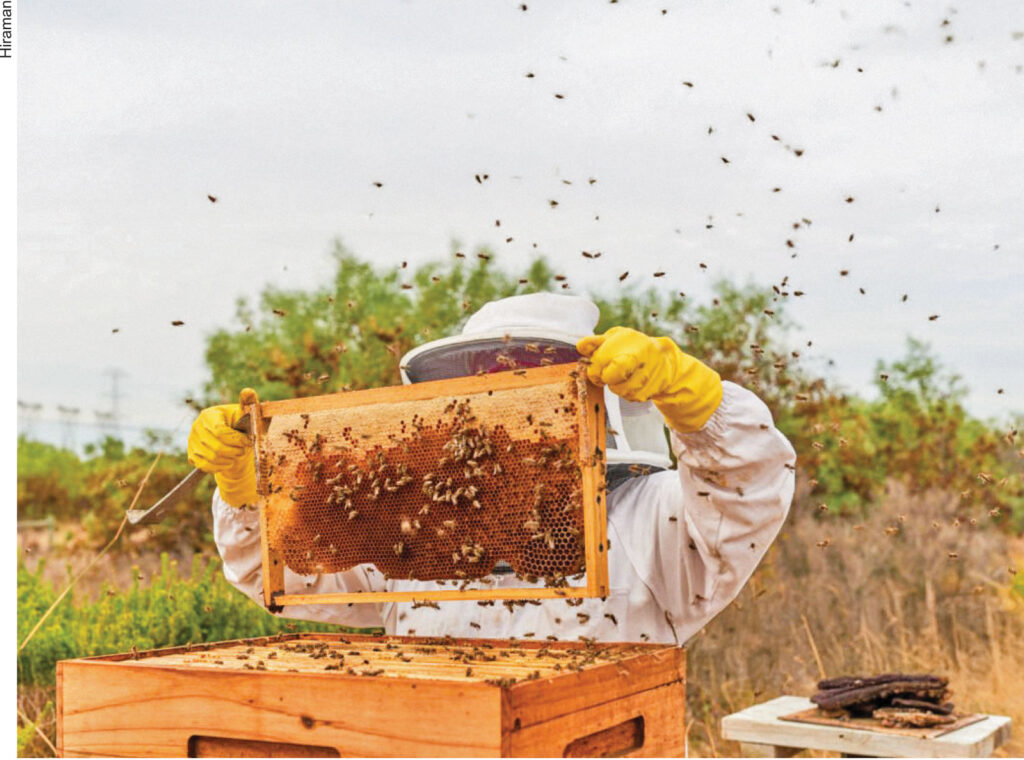Bees know no borders,” said Rhyda M, an Interactor from Bengaluru, sharing an example of Israeli and Palestinian beekeepers collaborating through initiatives like Honey of Peace. “Nature can succeed where politics often fails,” she noted, speaking at the Environmental Solutions for Peacebuilding, a virtual event hosted by RI District 3192 and Environmental Sustainability Rotary Action Group (ESRAG), South Asia. The discussion brought together young leaders and Rotarians from India, Nepal, Bhutan, Pakistan, Afghanistan, Sri Lanka, Maldives and Bangladesh, each presenting solutions that connected environmental action with peacebuilding. The event served as a countdown to the Rotary South Asia International Peace Conference, scheduled in Bengaluru in March.
Rhyda highlighted the Korean DMZ Peace Park, “a once-militarised strip of land between North and South Korea that was left untouched for decades, and which has now been transformed into a thriving sanctuary for endangered species. Could similar peace parks emerge in other conflict-prone regions?” She posed the question to fellow Interactors and Rotarians urging them “to think of ways environmental conservation could become a shared, borderless mission.”
Schools must take environmental challenges more seriously. Early awareness can inspire students to take responsibility for protecting and improving the environment.
She also put forward two solutions: “AI-powered platforms to manage natural resources in conflict zones and mobile water purification units for areas lacking clean drinking water.” Acknowledging the logistical and financial hurdles, she emphasised the need for early intervention. “Change begins at the grassroots level. Schools must take climate change and environmental challenges more seriously. If we create awareness early on, we can inspire students to take responsibility for protecting and improving the environment.”
RID 3192 DG Mahadev Prasad said that “while millions of dollars are spent on development projects worldwide, peacebuilding often remains sidelined. If bees know no borders, neither do Interactors. This platform allows young leaders to share solutions, address local environmental issues and tackle global challenges together. These Interactors aren’t just talking — they’re proposing solutions that could reshape how communities, and even nations, approach peacebuilding.”

From Pakistan, Jozia Mariam spoke about water scarcity and its unequal distribution in her country. She highlighted government and international efforts, such as Bondh-e-Shams and Water for Women, but stressed that “these initiatives alone aren’t enough. We need to build large and small dams to store and manage water better, educate communities on water conservation and pollution, and encourage rainwater harvesting to make efficient use of natural resources. Pakistan needs urgent investment in water infrastructure. Sustainable water management can reduce conflicts over resources.”

Runaiya Rahman Alim from Bangladesh highlighted that “over the last five decades about 85,000 households have been displaced in my country due to riverbank erosion.” Citing Assam’s success story, where riverbanks were stabilised by planting bamboo saplings, she said that this was “a sustainable solution compared to the jute bags that serve as temporary reinforcements. Replantation is the only long-term solution.” She called for stakeholders, NGOs and international organisations to step in “not just to restore riverbanks but to help displaced communities rebuild their lives.”
Gavit Althugedhara from Sri Lanka suggested reforestation of the civil war affected areas. He cited Cambodia’s initiative, where “the United Nations planted 150,000 trees to restore land devastated by conflict. Sri Lanka is also focused on eco-tourism by investing in conservation projects. Our country is boosting tourism, creating jobs and increasing biodiversity, proving that environmental restoration and economic development can go hand-in-hand.”






